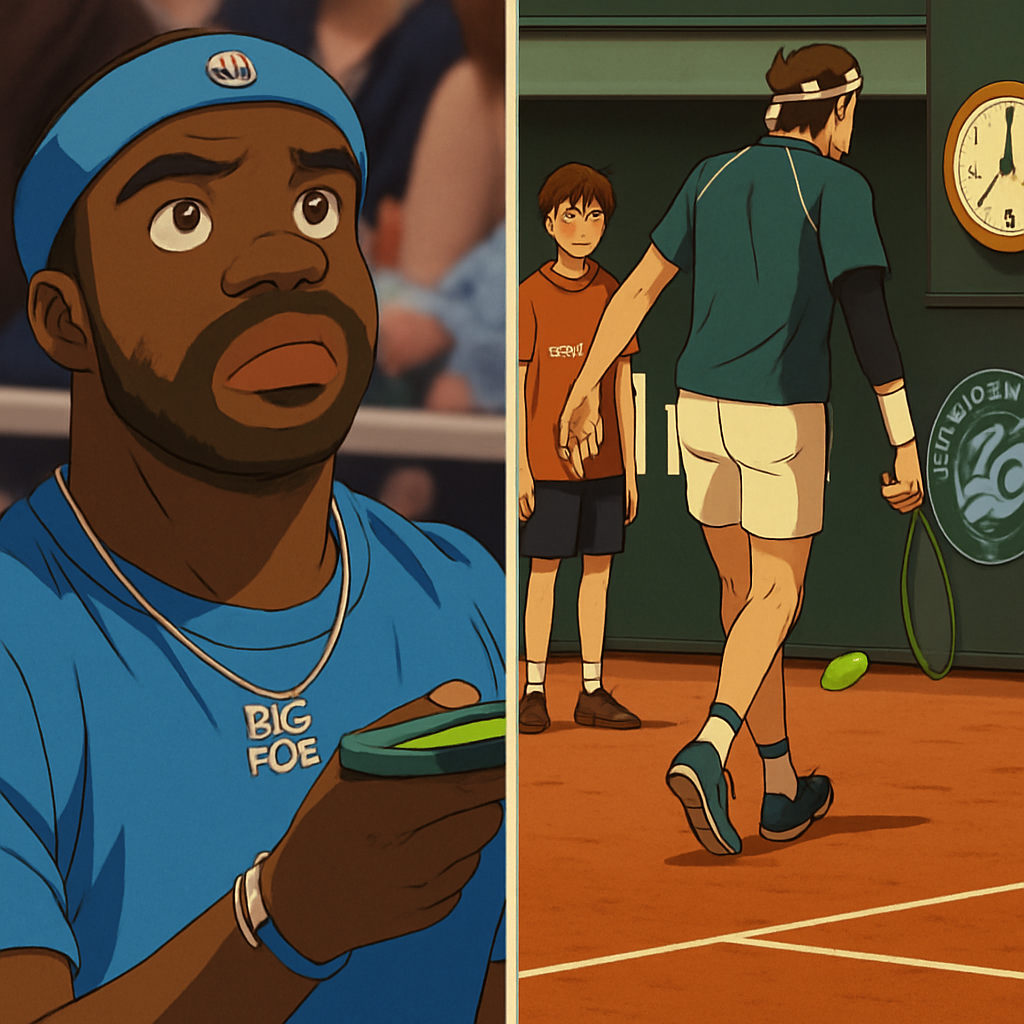PARIS — American tennis star Frances Tiafoe found himself at the center of controversy during the 2024 French Open after his opponent, Italy's Lorenzo Musetti, narrowly avoided disqualification for an on-court outburst that many believed warranted stricter consequences. Tiafoe's reaction—both subtle and telling—spoke volumes about the perceived inconsistency in officiating at Roland Garros.
The Incident That Sparked the Debate
During their second-round clash, Musetti, trailing in the third set, slammed his racket into the clay court with such force that it left a visible mark. Chair umpire Renaud Lichtenstein issued a code violation for racket abuse but stopped short of escalating to a point penalty or disqualification—a decision that left Tiafoe visibly perplexed. "You’ve got to be kidding me," Tiafoe muttered, shaking his head as he walked to his bench.
The incident reignited discussions about consistency in enforcing rules, particularly after Novak Djokovic’s 2020 US Open disqualification for accidentally hitting a line judge with a ball. Tiafoe, known for his sportsmanship, didn’t openly protest but later admitted in his post-match press conference: "It’s tough when you see guys get away with stuff you know others wouldn’t."
Tiafoe’s Measured Response
Despite the frustration, Tiafoe channeled his energy into his game, ultimately defeating Musetti in four sets (6-4, 3-6, 6-3, 6-2). His composed demeanor stood in stark contrast to Musetti’s emotional outbursts, which included:
- A second racket smash later in the match
- Audible cursing in Italian directed at himself
- A heated exchange with the umpire over a line call
When asked if he believed Musetti deserved harsher penalties, Tiafoe diplomatically replied, "That’s not my job. I just play. But you want to see the same rules for everyone, you know?"
The Bigger Picture: Consistency in Officiating
Recent Precedents in Tennis
Tiafoe’s reaction highlights a growing frustration among players regarding inconsistent disciplinary actions. Recent examples include:
- Djokovic’s 2020 default at the US Open
- Alexander Zverev’s 2022 Acapulco disqualification for repeated racket abuse
- Daniil Medvedev’s 2023 Wimbledon warning for a similar racket smash
- Musetti escaping further punishment in this instance
Former player and ESPN analyst Brad Gilbert noted, "When you see a guy like Frances keep his cool in these moments, it makes you wonder why the rules aren’t applied equally. That racket smash was as bad as any I’ve seen this year."
The Role of the Grand Slam Rulebook
Per Grand Slam regulations, a player can be defaulted for a single act of "aggravated behavior," with racket abuse falling under this category. However, umpires retain discretion, leading to varying interpretations. Tennis journalist Ben Rothenberg tweeted during the match: "If Musetti’s racket smash doesn’t qualify as ‘aggravated,’ what does? The inconsistency is baffling."
Tiafoe’s Rising Reputation
Beyond the controversy, the match reinforced Tiafoe’s growing stature as a leader in the sport. His ability to maintain focus amid distractions drew praise from commentators and fans alike. "That’s why people love Frances," tweeted Andy Roddick. "Handles adversity with class and lets his racket do the talking."
Tiafoe’s performance also marked a career milestone—his first time advancing to the third round at Roland Garros. "I’m just trying to keep building," he said afterward. "Clay’s not my best surface, but I’m putting in the work."
What’s Next for Both Players
While Tiafoe moved forward in the tournament, Musetti faced scrutiny for his conduct. The Italian later apologized on social media, writing: "Emotions got the best of me today. I respect Frances and the sport too much to let that happen again." The incident, however, will likely fuel ongoing debates about enforcement standards.
As for Tiafoe, his reaction—or lack thereof—may have been the most powerful statement of all. In an era where players increasingly vocalize grievances, his restraint underscored a quiet confidence. "At the end of the day, I can only control me," he shrugged. "That’s all I’m worried about."
The episode serves as a reminder that in tennis, as in life, actions often speak louder than words—and Tiafoe’s poised response resonated far louder than any racket smash ever could.

